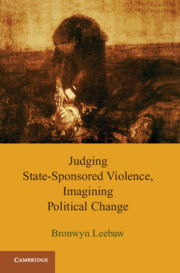Book contents
- Frontmatter
- Contents
- Acknowledgments
- 1 Introduction: Transitional Justice and the “Gray Zone”
- 2 Human Rights Legalism and the Legacy of Nuremberg
- 3 A Different Kind of Justice: South Africa's Alternative to Legalism
- 4 Political Judgment and Transitional Justice: Actors and Spectators
- 5 Rethinking Restorative Justice
- 6 Remembering Resistance
- 7 Conclusion: The Shadows of the Past
- Select Bibliography
- Index
3 - A Different Kind of Justice: South Africa's Alternative to Legalism
Published online by Cambridge University Press: 05 June 2012
- Frontmatter
- Contents
- Acknowledgments
- 1 Introduction: Transitional Justice and the “Gray Zone”
- 2 Human Rights Legalism and the Legacy of Nuremberg
- 3 A Different Kind of Justice: South Africa's Alternative to Legalism
- 4 Political Judgment and Transitional Justice: Actors and Spectators
- 5 Rethinking Restorative Justice
- 6 Remembering Resistance
- 7 Conclusion: The Shadows of the Past
- Select Bibliography
- Index
Summary
Eugene de Kock was known as “Prime Evil” for the deeds he had committed as commander of Vlakplaas, an infamous South African counterinsurgency unit. As an assassin for the apartheid state, de Kock had orchestrated a series of brutal murders and cross-border raids. In 1997, de Kock appeared before South Africa's Truth and Reconciliation Commission to give testimony concerning his role in the assassination of three black policemen. He explained how he had arranged to have explosives planted in the car that was taken by the policemen to pursue a false mission that he had devised for them. The three widows of his victims sat in the audience as de Kock relayed, in intimate detail, the steps that he had taken to organize the murder of their husbands. After the hearing, de Kock surprised TRC officials by requesting a meeting with the widows, stating that he wished to apologize to them privately. Recalling the incident, truth commissioner Pumla Godobo-Madikizela writes that she was not sure how the widows would respond to the request, or how such a meeting would proceed. “Would the widows be willing to see de Kock?” she wondered, “What would he say? ‘I'm sorry I killed your husbands?’” Two of the women, Pearl Faku and Doreen Mgoduka, agreed to the meeting with de Kock. According to Godobo-Madikizela, they were both deeply moved by the apology. “I would like to hold him by the hand,” said Mrs. Faku in her debriefing with Godobo-Madikizela, “and show him that there is a future, and that he can still change.”
- Type
- Chapter
- Information
- Publisher: Cambridge University PressPrint publication year: 2011



